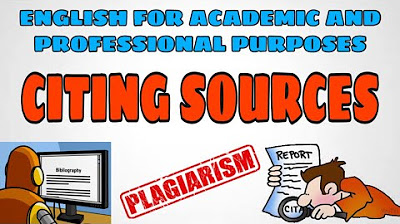Academic Writing: How to Write Academic Papers
Summary
TLDRThis video explores the complexities of academic writing, highlighting the different forms it takes across disciplines. It addresses common pitfalls such as overly complex language, jargon, and passive constructions, offering practical advice on how to write clearly and effectively. The speaker explains why academic writing can be difficult to read and emphasizes the importance of structure, concise language, and clarity. The video also stresses the significance of understanding discipline-specific conventions and maintaining an engaging narrative throughout the writing process, ultimately guiding students and scholars toward better academic communication.
Takeaways
- 😀 Avoid jargon and complex structures that can make writing difficult to understand.
- 😀 Use active voice instead of passive voice to make sentences clearer and more direct.
- 😀 Break down your writing into clear sections with distinct goals for each paragraph or subsection.
- 😀 Start your writing with a strong introduction that states your argument or thesis clearly.
- 😀 Conclude by emphasizing your main contribution and linking it back to the bigger picture.
- 😀 Avoid ending your paper with limitations or open questions—focus on your main contributions.
- 😀 Use short, clear sentences and avoid overly complicated sentence structures.
- 😀 Write for accessibility and clarity, especially for a wider, potentially interdisciplinary audience.
- 😀 Focus on the relevance of your research and why it matters to your audience.
- 😀 Ensure that your academic writing has a logical flow, helping readers easily follow your argument.
- 😀 When presenting conclusions, offer practical advice, suggest future research directions, and restate your main takeaway.
Q & A
Why is academic writing important?
-Academic writing is crucial because it is the most common way to communicate academic findings, and it helps create a lasting body of knowledge that adheres to clear expectations. It plays a key role in disseminating research within academia.
What are the different types of academic writing?
-Different types of academic writing include research papers, term papers, theses, research proposals, literature reviews, analysis essays, and critique essays. Each type serves a specific purpose and follows different conventions depending on the discipline.
How does academic writing vary across disciplines?
-Academic writing varies widely across disciplines. For example, in the humanities, long-form writing like books is common, while in the natural sciences and some social sciences, research articles following a rigid structure are more common. Different fields have their own specific conventions.
What is the structure of a typical social sciences research article?
-A typical social sciences research article follows a clear structure: introduction, literature review, methodology section, results presentation, and a discussion. These sections are kept separate to make it easier for readers to skim and understand the key findings.
What is a literature review in academic writing?
-A literature review in academic writing is an analysis of existing research on a specific topic. It contrasts various arguments and findings to map out a particular debate or issue area, helping set the context for new research.
What is the problem with complex academic writing?
-Complex academic writing can be difficult to understand because it often includes long sentences, jargon, passive voice, and unclear structures. This makes the writing inaccessible, even to experts in the field, and can lead to frustration for readers.
How can academic writing be made clearer and more accessible?
-To improve clarity, academic writing should use short, direct sentences, active voice, clear subjects, and verbs instead of noun chains. Avoid unnecessary jargon, explain specialized terms, and aim for concise and straightforward language.
Why do academics often write in a complex and unclear manner?
-Academics may write in a complex manner due to discipline-specific conventions, a lack of writing training, pressure to conform to peer expectations, and the desire to sound more authoritative. Additionally, writing in non-native languages or under time constraints can also contribute to unclear writing.
What are the common pitfalls in academic writing that hinder understanding?
-Common pitfalls include the use of passive voice, excessive jargon, overly long sentences, unclear subject-verb relationships, and poorly structured arguments. These elements can make writing cumbersome and difficult for readers to follow.
How should an academic paper be structured for maximum clarity?
-An academic paper should have a clear introduction that states the research question or hypothesis, followed by a structured body that presents the methodology, analysis, and arguments. The conclusion should summarize the main findings and return to the relevance of the topic, providing a clear takeaway for the reader.
Outlines

Cette section est réservée aux utilisateurs payants. Améliorez votre compte pour accéder à cette section.
Améliorer maintenantMindmap

Cette section est réservée aux utilisateurs payants. Améliorez votre compte pour accéder à cette section.
Améliorer maintenantKeywords

Cette section est réservée aux utilisateurs payants. Améliorez votre compte pour accéder à cette section.
Améliorer maintenantHighlights

Cette section est réservée aux utilisateurs payants. Améliorez votre compte pour accéder à cette section.
Améliorer maintenantTranscripts

Cette section est réservée aux utilisateurs payants. Améliorez votre compte pour accéder à cette section.
Améliorer maintenantVoir Plus de Vidéos Connexes

How To Write A Research Paper: Introduction (Complete Tutorial)

What Is Content Area Literacy?

Learn English - Hedging And Boosting

Curso Norma APA. Primera Parte.

Structure of academic texts from various academic disciplines| English for Academic & Prof.Purposes

CITING SOURCES | English for Academic and Professional Purposes
5.0 / 5 (0 votes)
